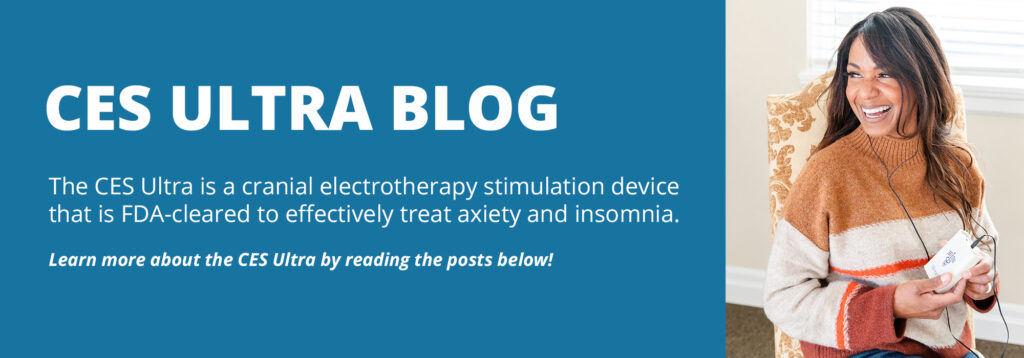Cranial electrotherapy stimulation (CES) is a non-invasive form of therapy that uses a low-level electrical current to stimulate the brain and promote relaxation and pain relief. While CES has been found to be effective in treating a range of mental health conditions, including anxiety and depression, as well as pain and insomnia, it is important to find a local CES provider who can offer safe and effective treatment.
There are several reasons why finding a local CES provider is important. Firstly, having a local provider makes it easier to access the treatment when it is needed. Unlike other forms of therapy, which require regular visits, CES therapy is typically administered in short sessions, making it more convenient for individuals who have busy schedules. Another benefit of finding a local CES provider is that it provides an opportunity to establish a relationship with a healthcare professional who is familiar with the individual’s specific needs and concerns. A local provider will have a better understanding of the individual’s medical history and can provide tailored advice and recommendations.
In addition to the convenience and personalization benefits, finding a local CES provider is also important for ensuring the safety and effectiveness of the treatment. While CES is generally considered safe, it is important to find a provider who is qualified and experienced in administering the therapy. A qualified and experienced provider will be able to ensure that the electrical current is administered safely and effectively, and will be able to identify any potential contraindications or side effects. When searching for a local CES provider, it is important to consider their qualifications and experience. A qualified CES provider should have a background in mental health, pain management, or a related field, and should have received specific training in CES therapy. They should also have a proven track record of success, with positive references from previous clients.
Another factor to consider when choosing a CES provider is the cost and insurance coverage. While CES is typically covered by insurance, it is important to find a provider who is in-network and who can work with the individual’s insurance provider to minimize out-of-pocket costs.
Finally, it is important to find a CES provider who is located in a convenient and accessible location. This can help ensure that the individual is able to attend the therapy sessions regularly and can also minimize any travel-related stress or inconvenience.
Finding a Cranial Electrotherapy Stimulation (CES) Provider Near You
Cranial electrotherapy stimulation (CES) is a non-invasive form of therapy that uses a low-level electrical current to stimulate the brain and promote relaxation and pain relief. If you are interested in trying CES, it is important to find a qualified and experienced provider who is located near you.
There are several ways to find a CES provider near you. The first is to search online. There are several websites and online directories that can help you locate a CES provider in your area, including professional organizations such as the International Society for Neurostimulation and the Bioelectromagnetic Society.
Another way to find a CES provider near you is to ask for referrals from healthcare providers or friends and family. Healthcare providers who specialize in mental health or pain management may be able to recommend a CES provider in your area, while friends and family may be able to refer you to a provider who has helped them with similar concerns.
If you are having difficulty finding a CES provider in your area, you may also consider contacting professional organizations such as mental health organizations or pain management organizations. These organizations can provide you with a list of qualified CES providers in your area and can also help you find a provider who is well-suited to meet your specific needs and concerns.
When choosing a CES provider, it is important to consider several factors, including their qualifications and experience, reputation, availability and location, and cost and insurance coverage. A qualified CES provider should have a background in mental health, pain management, or a related field, and should have received specific training in CES therapy. They should also have a proven track record of success, with positive references from previous clients.
It is also important to find a CES provider who is located in a convenient and accessible location, as this can help ensure that you are able to attend therapy sessions regularly and minimize any travel-related stress or inconvenience. Additionally, you should consider the cost of the therapy and whether it is covered by your insurance.
To prepare for your CES therapy session, it is important to bring all relevant medical information, including your insurance information and medical history, to your first appointment. During the session, the CES provider will attach electrodes to your scalp and administer a low-level electrical current to stimulate your brain. The therapy session typically lasts between 20 and 60 minutes and is generally considered safe and well-tolerated.
After your CES therapy session, it is important to discuss any questions or concerns you may have with your CES provider. They will be able to provide you with additional information about the therapy, including any potential side effects, and can help you determine if CES is the right treatment option for you.
Factors to Consider When Choosing a Cranial Electrotherapy Stimulation (CES) Provider
Cranial electrotherapy stimulation (CES) is a non-invasive form of therapy that uses a low-level electrical current to stimulate the brain and promote relaxation and pain relief. If you are interested in trying CES, it is important to find a qualified and experienced provider who can deliver effective and safe treatment. Here are several key factors to consider when choosing a CES provider:
1. Qualifications and Experience: A qualified CES provider should have a background in mental health, pain management, or a related field, and should have received specific training in CES therapy. It is also important to find a provider who has experience delivering CES therapy and a proven track record of success.
2. Reputation: You can research the reputation of a CES provider by looking at online reviews, testimonials from previous clients, and by asking for referrals from healthcare providers or friends and family. A provider with a good reputation is more likely to provide effective and safe treatment.
3. Availability and Location: It is important to find a CES provider who is located in a convenient and accessible location, as this can help ensure that you are able to attend therapy sessions regularly and minimize any travel-related stress or inconvenience. Additionally, you should consider the provider’s availability, including their hours of operation and the wait time for appointments.
4. Cost and Insurance Coverage: CES therapy can be costly, so it is important to consider the cost of the therapy and whether it is covered by your insurance. Some CES providers may accept insurance, while others may not. It is important to find a provider who offers affordable services and to check with your insurance company to see if CES therapy is covered under your plan.
5. Treatment Approach: CES therapy can be delivered in different ways, and it is important to find a provider who uses an approach that is well-suited to your specific needs and concerns. Some CES providers may use a holistic approach, incorporating lifestyle changes and other forms of therapy, while others may focus primarily on CES therapy.
6. Communication and Support: Communication is key to the success of CES therapy, and it is important to find a provider who is open and responsive to your questions and concerns. You should look for a provider who takes the time to explain the therapy process and who is available to answer your questions and provide support throughout the treatment process.
When you have found a CES provider who meets your criteria, it is important to schedule a consultation to discuss your specific needs and concerns. During the consultation, the provider will evaluate your medical history, current symptoms, and overall health to determine if CES therapy is appropriate for you. If CES therapy is appropriate, the provider will explain the therapy process and answer any questions you may have. Finding a qualified and experienced Cranial Electrotherapy Stimulation (CES) provider is important for ensuring the safety, effectiveness, and success of the treatment. By considering factors such as qualifications and experience, reputation, availability and location, cost and insurance coverage, treatment approach, and communication and support, you can find a provider who is well-suited to meet your specific needs and concerns.
Preparing for your CES therapy session
Preparing for Your Cranial Electrotherapy Stimulation (CES) Therapy Session
Cranial electrotherapy stimulation (CES) is a non-invasive form of therapy that uses a low-level electrical current to stimulate the brain and promote relaxation and pain relief. If you are planning to undergo CES therapy, it is important to prepare properly to maximize the benefits of the treatment and ensure a comfortable and safe experience. Here are several key steps to take when preparing for your CES therapy session:
1. Consult with your doctor: Before starting CES therapy, it is important to consult with your doctor to determine if CES therapy is appropriate for you. This may involve a physical examination, a review of your medical history, and an assessment of your current symptoms and overall health. Your doctor will be able to provide you with important information about the therapy and help you determine if it is the right choice for you.
2. Choose a qualified CES provider: It is important to choose a qualified and experienced CES provider who has a proven track record of delivering effective and safe therapy. Look for a provider who has received specific training in CES therapy, has experience delivering the therapy, and has a good reputation in the community.
3. Discuss the therapy process: During your consultation with the CES provider, it is important to discuss the therapy process and ask any questions you may have. Your provider will be able to explain how the therapy works, what you can expect during the treatment, and how to prepare for your therapy sessions.
4. Wear comfortable clothing: On the day of your CES therapy session, it is important to wear comfortable clothing that allows for easy access to your ears. Loose-fitting clothing is ideal, as the CES device is typically placed behind the ear during the treatment.
5. Avoid using certain substances: To ensure the safety and effectiveness of your CES therapy, it is important to avoid using certain substances, including alcohol, caffeine, and recreational drugs, prior to your therapy session. These substances can interfere with the therapy process and may cause adverse effects.
6. Relax and be open to the experience: CES therapy is designed to promote relaxation and pain relief, and it is important to approach the therapy with an open and relaxed mindset. Avoid feeling anxious or stressed prior to your therapy session, as this can interfere with the effectiveness of the treatment.
7. Follow your provider’s instructions: During your CES therapy session, it is important to follow your provider’s instructions and to listen to your body. If you experience any discomfort or adverse effects during the therapy, let your provider know immediately.
In conclusion, preparation is key to maximizing the benefits of Cranial Electrotherapy Stimulation (CES) therapy and ensuring a comfortable and safe experience. By consulting with your doctor, choosing a qualified CES provider, discussing the therapy process, wearing comfortable clothing, avoiding certain substances, relaxing and being open to the experience, and following your provider’s instructions, you can prepare properly for your CES therapy session.

